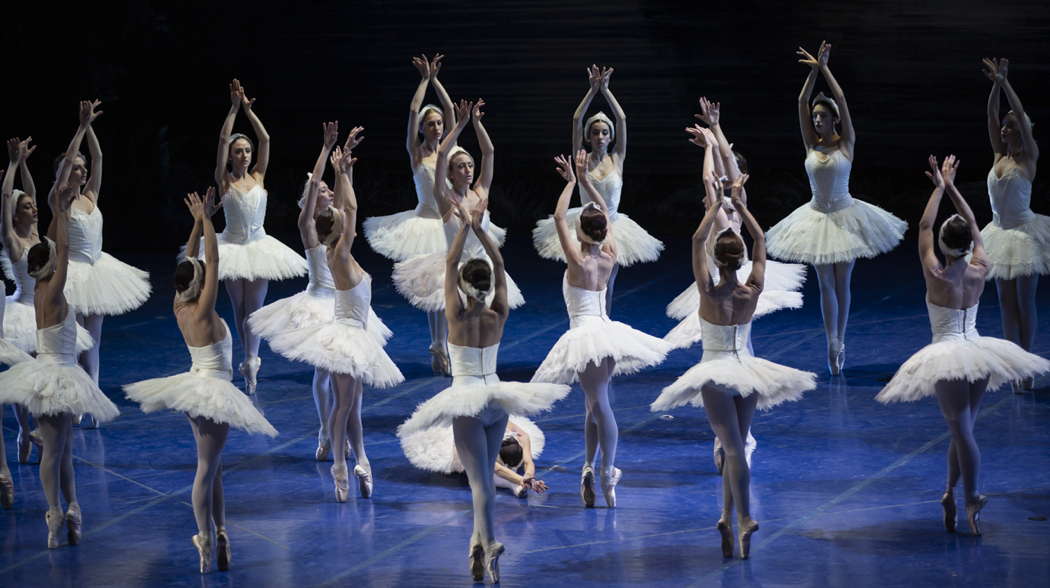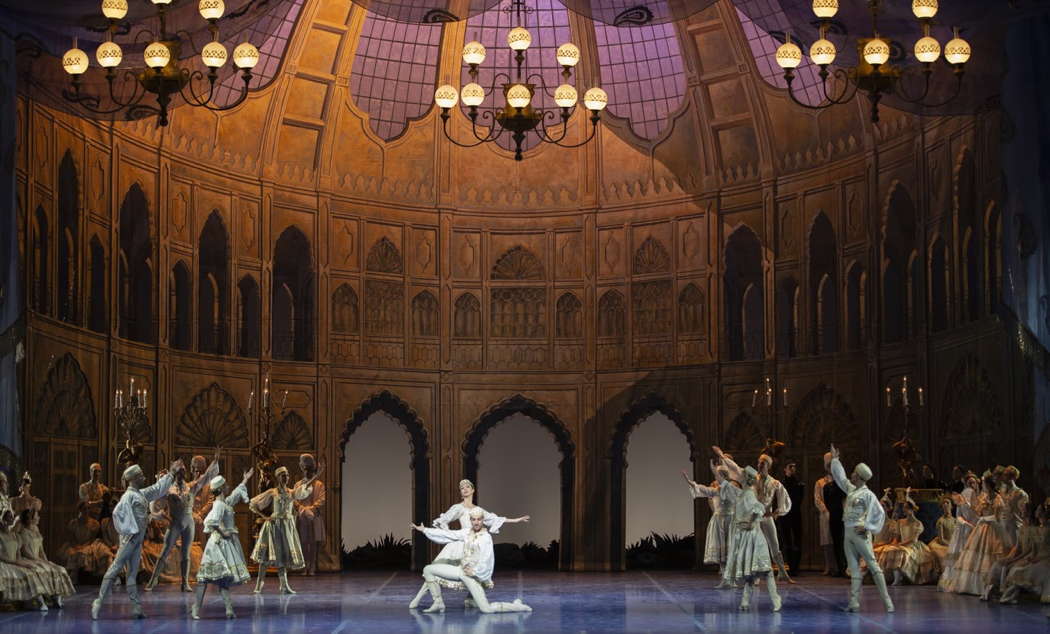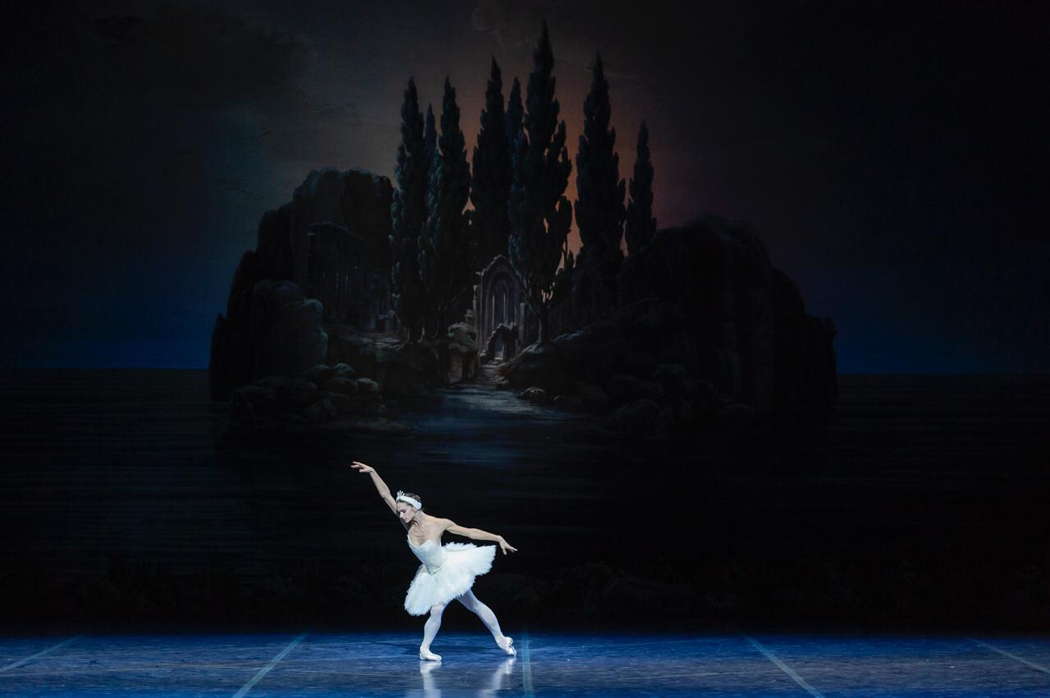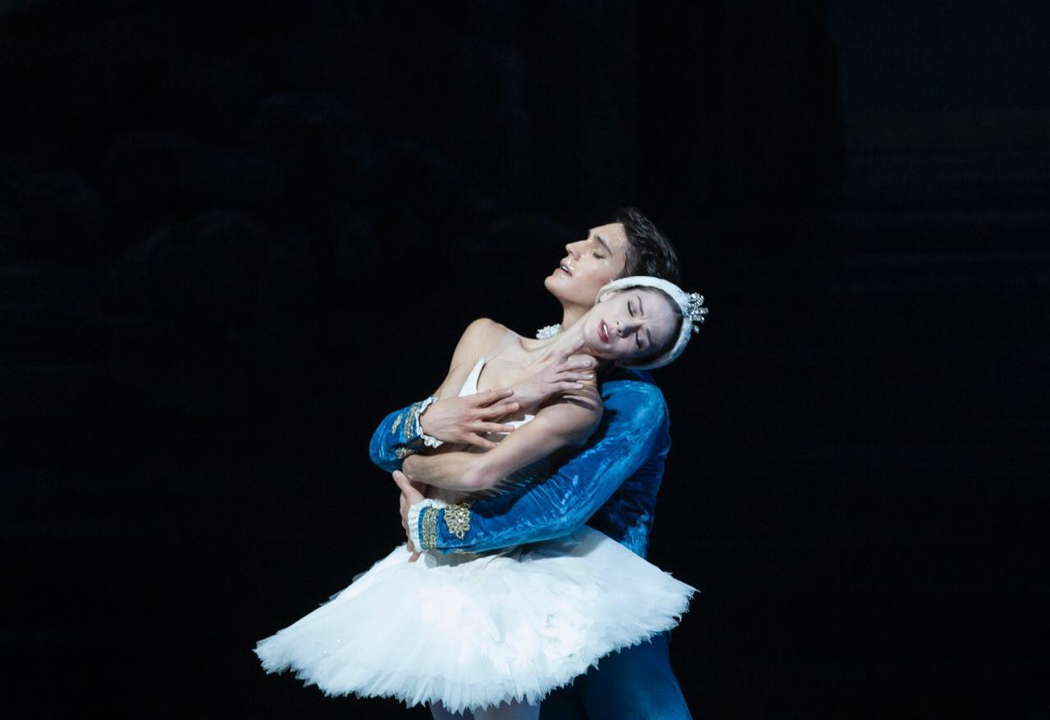 PODCAST: John Dante Prevedini leads a discussion about Classical Music and Visual Disability, including contributions from Charlotte Hardwick, Robert McCarney, Halida Dinova and Giuseppe Pennisi.
PODCAST: John Dante Prevedini leads a discussion about Classical Music and Visual Disability, including contributions from Charlotte Hardwick, Robert McCarney, Halida Dinova and Giuseppe Pennisi.
Intimate Suffering
Tchaikovsky's 'Swan Lake' at
Teatro dell'Opera di Roma,
reviewed by GIUSEPPE PENNISI
In Italy, for the Holiday Season, Tchaikovsky's Swan Lake is nearly as staple as panettone. This is particularly true in Rome. This winter, between Christmas and Epiphany in the Italian capital, there are four theatres offering Tchaikovsky's ballets, mostly Swan Lake and The Nutcracker. Some are local companies, some Eastern European (including Russian) groups on tour. Some have a full orchestra; others dance to recorded music.
Teatro dell'Opera di Roma also plays Tchaikovsky, but on a different scale and with a different style. This year, it revived the new production of Swan Lake which had its debut on 28 December 2018; I reviewed it in this magazine on 31 December 2018. This year the revival started in 31 December 2019 and will have nine performances, all of them sold out. I attended the 2 January 2020 performance. Why review it again? The cast is different; indeed, four sets of principals alternate in the nine performances. More fundamentally, the young French choreographer Benjamin Pech has deepened the changes in the libretto already apparent in 2018. Swan Lake is no longer a black fairy tale (with a tragic end) but a reflection on intimate suffering.
Already, in the 2018 production, the libretto had been modified from the traditional version in that the best friend of Prince Siegfried and the devious magician Rothbart were the same person. Disguised as Benno, the envious and jealous Rothbart cheats the Prince in his love affair with Odette/Odile until the tragic end. This time there is more emphasis on Prince Siegfried’s difficulties, if not impossibility, to have a relationship with Odette/Odile, as well as with any other woman. The structure of the ballet and its dramatic composition reveal the intimate drama of Tchaikovsky who suffered a great deal from his homosexuality. He perceived it as an ineluctable tragedy. The same happens to Prince Siegfried, who is denied the affection of the woman he is in love with.
In my view, this reading is in line with the fact that Swan Lake was composed during one of the worst periods of Tchaikovsky's life, whilst he was attempting to conceal his own sexual orientation by the means of a marriage that was short and ended badly. In the score, the juxtaposition between B flat-D-F and B-F sharp-C expresses not only the confrontation between good and evil but also the composer's inner torment. A similar accord is one of the main themes of Tchaikovsky's sixth symphony. To fully appreciate these aspects, the ballet must not be danced to recorded music. In the pit, there must be a fully fledged orchestra experienced with symphonic music and opera, and a good conductor. The Teatro dell’Opera orchestra is top class and the conductor, Nir Kabaretti, is the music director of a major American symphony orchestra and an opera conductor of international repute. Thus, they were able to extract the inner suffering from a score originally conceived for pure entertainment. The elegant and sophisticated, yet tormented and sad score is played like a superb symphony, not as music to accompany dancing.

A scene from Tchaikovsky's Swan Lake at Teatro dell'Opera di Roma. Photo © 2019 Yasuko Kageyama
In this staging, Rothbart/Benno hates and destroys the Prince but appears also to be physically attracted by him. The production differs drastically from that presented in Rome in 2016 - read 'A Different Swan Lake', 29 September 2016 - where the ballet was staged in a dance school in France at the end of the nineteenth century, and major use was made of projections to show Siegfried's inner feelings.

A scene from Tchaikovsky's Swan Lake at Teatro dell'Opera di Roma. Photo © 2019 Yasuko Kageyama
The choreographer Pech recoups Aldo Buti's traditional sets and costumes that have been used for several Teatro dell’Opera Swan Lake productions for many decades. These sets recall what ought to have been the St Petersburg debut of the final version in 1895. They also provide an ambiguous atmosphere for the plot.

Polina Semionova in Tchaikovsky's Swan Lake at Teatro dell'Opera di Roma. Photo © 2019 Yasuko Kageyama
On 2 January 2020, the three principals were Polina Semionova (Odette/Odile), Daniel Camargo (Prince Siegfried) and Alessio Rezza (Benno). Semionova is a Russian étoile who has deserved several international awards. Daniel Camargo is a Brazilian étoile who has received several prizes and is a principal dancer with many European ballet companies.

Polina Semionova and Daniel Camargo in Tchaikovsky's Swan Lake at Teatro dell'Opera di Roma. Photo © 2019 Yasuko Kageyama
Alessio Rezza is primo ballerino with the ballet of the Teatro dell’Opera di Roma. They received open stage applause and five minutes of standing ovations at the end of the performance. There was warm applause also for the corps de ballet and to the dancers in several secondary roles.
Copyright © 4 January 2020
Giuseppe Pennisi,
Rome, Italy

FURTHER INFORMATION: PYOTR ILYICH TCHAIKOVSKY



